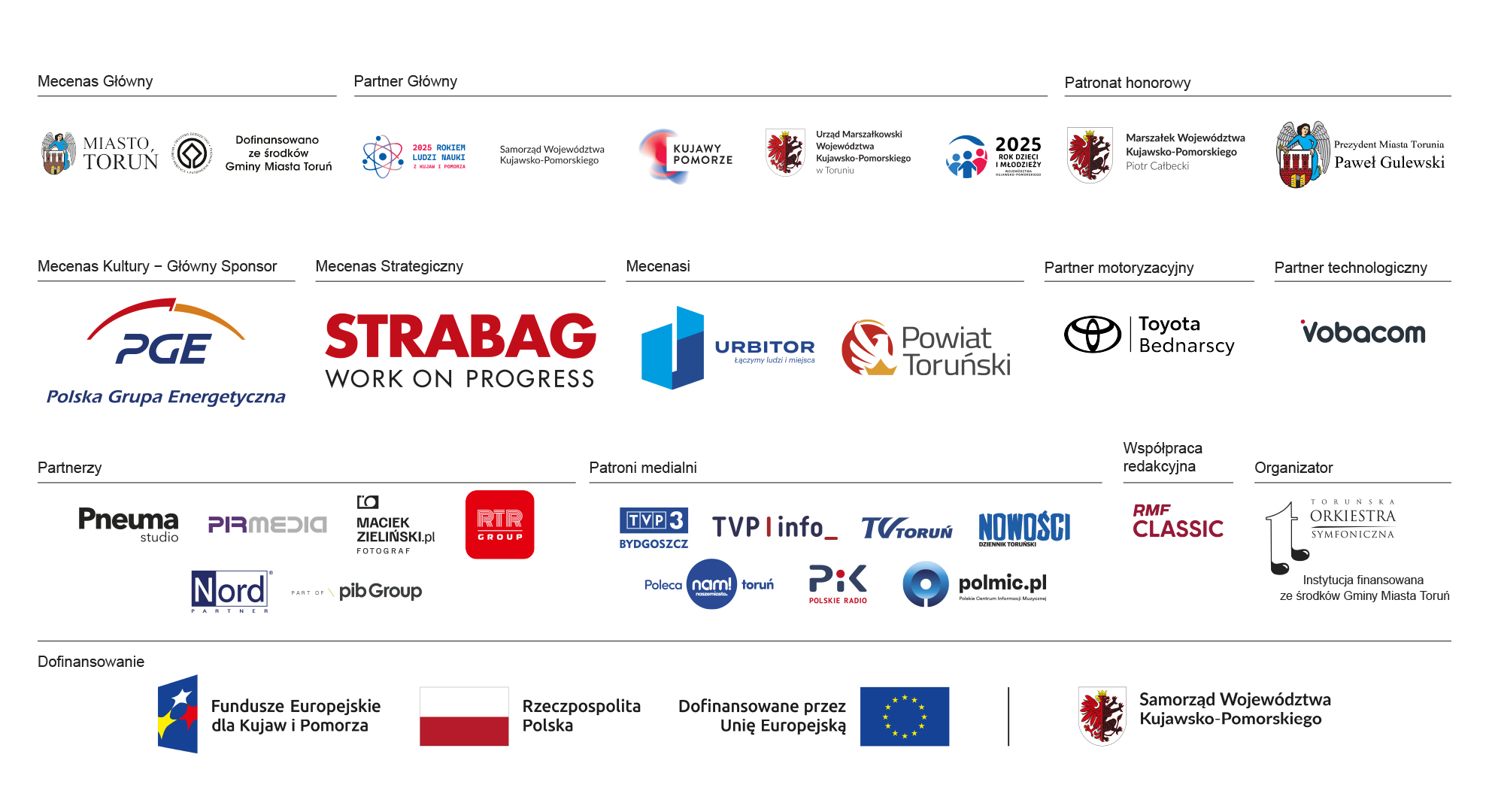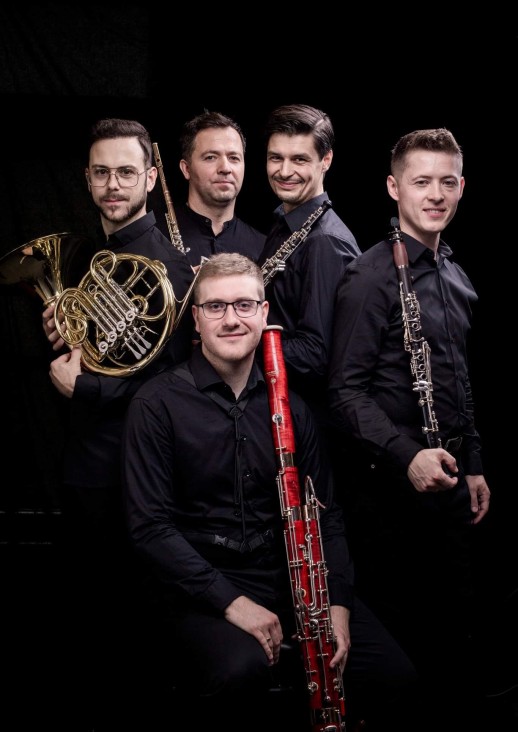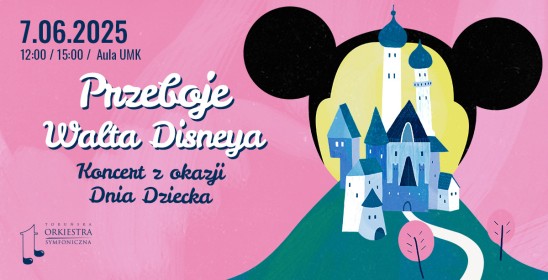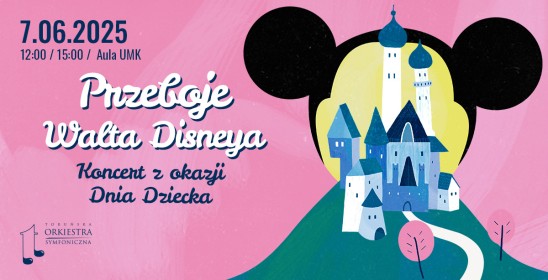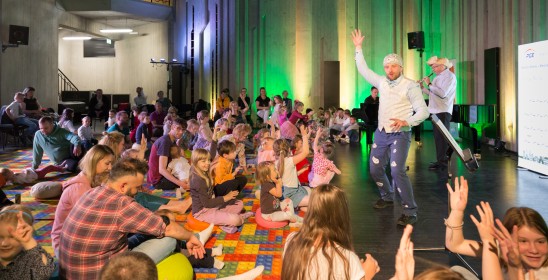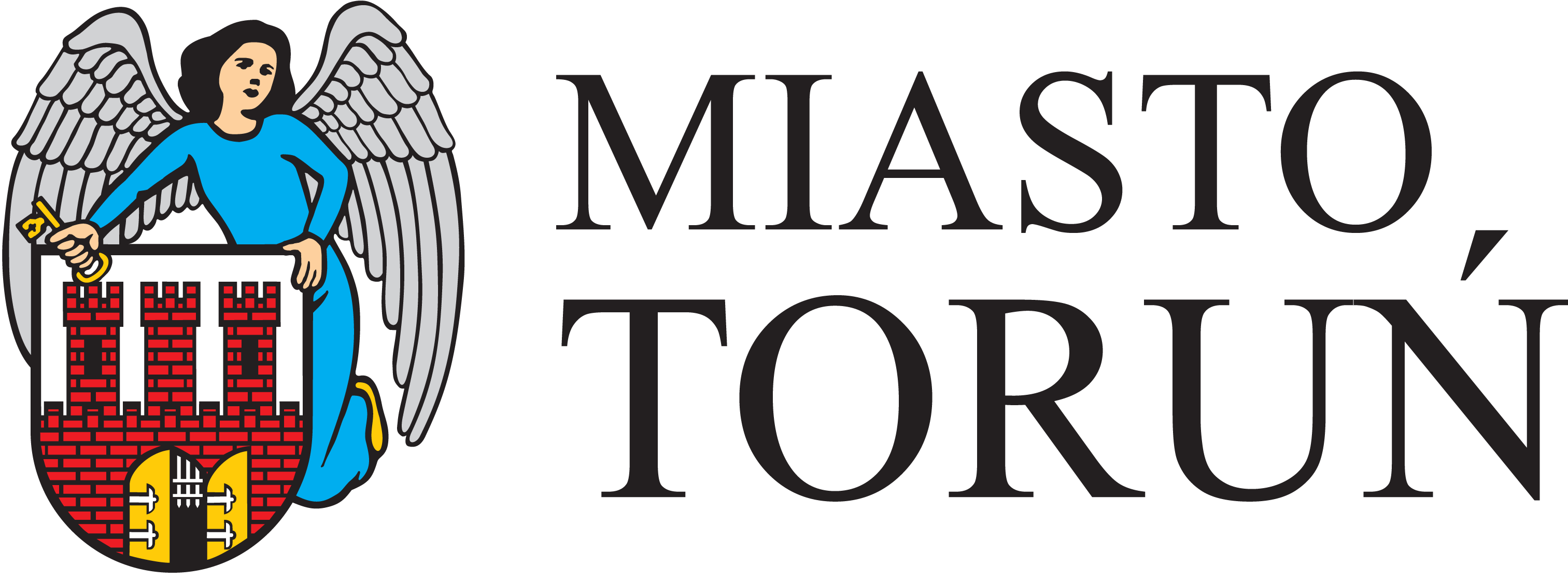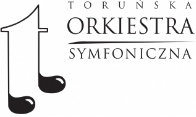Różne oblicza Europy Środkowo-Wschodniej
Quintessence:
- Seweryn Zapłatyński – flute
- Piotr Lis – oboe
- Grzegorz Wołczański – clarinet
- Marcin Orliński – basson
- Daniel Otero Carneiro – horn
- Karol Furtak - host
Programme:
- F. Farkas – Hungary dances
- D. Lipatti – 6 Sonatas of Scarlatti
- G. Ligeti – 6 Bagateli for wind quintet
- W. Kilar – Quintet for wind instruments
This unique concert, showcasing exclusively wind instruments, offers the audience not only a chance to appreciate their distinctive timbre, but also to explore the rich musical heritage of Poland, Hungary, and Romania.
The programme features works by celebrated composers from Central and Eastern Europe, performed by the Quintessence ensemble. The group is composed of graduates from prestigious music institutions, including Chopin University of Music in Warsaw, Conservatorio Superior de Vigo, Accademia Nazionale di Santa Cecilia in Rome, and Brass Academy in Alicante.
The concert opens with Hungarian Dances—but not the well-known pieces by Johannes Brahms. Instead, the audience will hear dances in the 17th-century style by Ferenc Farkas, a modern Hungarian composer renowned for drawing inspiration from folk traditions. Farkas was a proponent of clarity and simplicity in music, deliberately avoiding overly complex forms to make his work more accessible and resonant. His Hungarian Dances from the 17th Century evoke the spirit of Renaissance and courtly styles.
Also on the programme is Six Bagatelles for Wind Quintet by György Sándor Ligeti, a Hungarian composer of Jewish origin born in 1923 in what was then Romanian territory. At the age of 30, Ligeti arranged six movements from his piano suite Musica ricercata for wind quintet—flute, oboe, clarinet, horn, and bassoon—thus creating the Bagatelles.
The piece reflects Bartók’s influence through free-form passages, folk dance stylizations, Balkan rhythms, and a quotation from the third movement of Music for Strings, Percussion and Celesta. With its spontaneity and bold expression, the composition leaves a strong and lasting impression.
Interestingly, several of Ligeti's works were later used in Stanley Kubrick’s 2001: A Space Odyssey.
The repertoire also features Romanian composer Dinu Lipatti, often referred to as the “Prince of the Piano”. Lipatti died tragically young in 1950 at the age of just 33, after battling Hodgkin lymphoma. Despite his short life, he left behind a number of acclaimed recordings, including interpretations of Chopin. His playing was said to transcend the limitations of his time, offering depth and refinement that resonate with audiences across generations.
At the Jordanki Cultural and Congress Centre, audiences will have the opportunity to hear six sonatas by Domenico Scarlatti, a distinguished composer of the Baroque era. These works have been transcribed for wind quartet by Dinu Lipatti. The fusion of Baroque classical music with the distinctive timbre of wind instruments results in a surprising and richly textured sonic experience.
Adding a Polish touch to the programme is the music of Wojciech Kilar—renowned pianist and composer of classical, film, and sacred music. Kilar’s works reflect his remarkable versatility and mastery in sound selection. Over the course of his career, he composed scores for more than 130 films and received numerous awards and honours for his contributions to music. His Quintet for Wind Instruments will be performed at the Jordanki Centre. While chamber music occupied only a minor place in Kilar’s oeuvre, this quintet— written when he was just 20 years old—stands out as an early example of his creative voice. Rooted in neoclassical style, the piece also features melodic and harmonic elements drawn from Polish folk traditions.
The Different Faces of Central and Eastern Europe is a concert that celebrates Polish-Hungarian friendship and Hungarian-Romanian reconciliation. It also provides an opportunity to explore the rich musical heritage of composers from the former Eastern Bloc.
Mecenas Główny: Miasto Toruń
Partner Główny: Samorząd Województwa Kujawsko-Pomorskiego
Dofinansowano z Funduszy Europejskich
Patronat honorowy: Marszałek Województwa Kujawsko-Pomorskiego Piotr Całbecki, Prezydent Miasta Torunia Paweł Gulewski
Mecenas Kultury - Główny Sponsor: PGE Polska Grupa Energetyczna S.A.
Mecenas Strategiczny: Strabag Sp. z o.o.
Mecenasi: Urbitor Sp. z o.o., Starostwo Powiatowe w Toruniu
Partnerzy: Pneuma Jarosław Pawlicki, Pirmedia Sp. z o.o., BJJ Maciej Zieliński, RTR Group Sp. z o.o.
Partner motoryzacyjny: Toyota Bednarscy
Partner technologiczny: Vobacom Sp. z o.o.
Patronat medialny: TVP3 Bydgoszcz, TV Toruń, Nowości - Dziennik Toruński , Toruń Nasze Miasto, Polskie Radio PiK, POLMIC
Współpraca redakcyjna: RMF Classic
Organizator: Toruńska Orkiestra Symfoniczna
